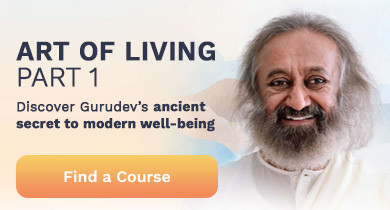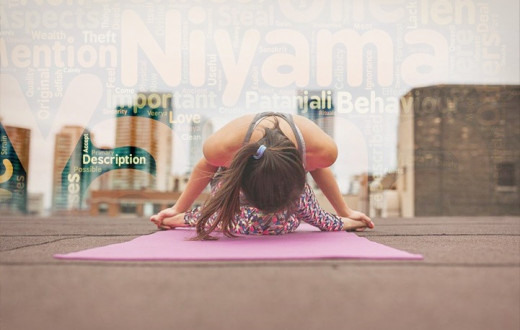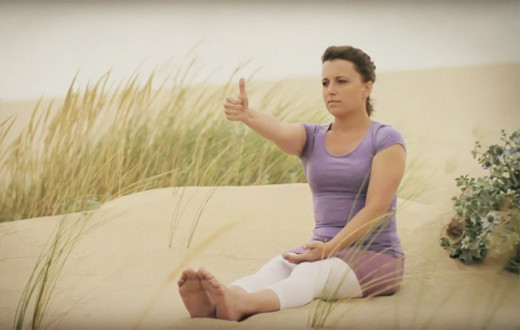
Why should you seek the subtle, or sukshma, in your yoga practice?
Have you noticed that most memorable or meaningful moments in life are not usually measurable, material, or even physical? They are always delicate and elusive — that’s what makes them precious!
We have all experienced this subtle state at some time or other, whether we realize it or not. It is a state where the quality of our presence and awareness is highly intuitive and refined – and yes, filled with wonder!
You may have felt this delicate state of being when the sun’s rays first graze your face on a beautiful fall morning, or a deep sense of presence and wonder at the resurgence of life when spring thaws the cold heart of winter. Mostly these moments dawn like dew droplets in the early morning sun - their illumination a sudden glory - your chance discovery a miracle of sorts!
When I first started practicing yoga I was drawn to the deep physical benefits of this practice; what I treasure now are those subtle moments in my practice that transform a routine set of simple asanas or poses into a confluence of miracles or intuitive moments that last throughout the day.
How can we cultivate a yoga practice that moves us towards a more subtle state - a state where we are closer to experiencing the delicate essence of our luminous self?
While subtlety by its very definition defies explanation, the benefits of focusing on the sukshma, or the delicate or subtle in yoga, are more powerful than simply barreling through an asana practice, that does not have the subtle component to it.
As a yoga teacher I never cease to be awestruck by wonder when I find my students or myself spontaneously in this state of mysterious wonder. Despite years of practice, one cannot expect it or seldom prepared for that serendipitous moment of wow!
The Yoga Sutras of Patanjali also refer to the subtle states where the eight limbs of yoga unfold harmoniously, whether it is the practice of ahimsa, nonviolence, simply inculcated with a smile, or pratyahara, withdrawal of the senses, engaged by the simple act of keeping our eyes closed during our practice and drawing the attention inward like a turtle withdrawing into its shell. The spontaneous expression of the essential philosophy of yoga is a miraculous manifestation that unfolds with a practice that cultivates the soft and subtle.
Here are five simple but powerful techniques that can help shift your practice to that spontaneous expression or place of subtle Aha!
1. Belongingness – When you feel a sense of connectedness to the universe and to its wonders big and small, the limited self expands to connect with all creatures, as well as the glorious gifts of this entire creation. The sun shines for you and the birds chirp their song only for YOU! The magnitude of this awareness shifts your practice from a union of just the body and mind to a union with all of cosmos, shifting your perception and your experience dynamically.

Practice: During the practise of yoga feel a sense of intimacy with nature: it could be a single flower, the sun or the entire creation.
2.Gaze or Dhristi - The subtlety of the gaze, or the dhristi, can completely change your asana practice and more. The cultivation of an inward gaze even while looking outward is the expression of dhristi, or the optimum gaze. While your physical practice may be dynamic; envision the gentleness of your gaze lending a delicate or subtle intelligence to your practice. Eye exercises are a key part of a holistic yoga practice.

Practice: In tree pose find a point or speckle on the floor to soften the gaze into. The subtle focus helps in balance during the pose, but the blossoming in this pose is a gift of cultivating that inner gaze.
3. Smile: If you had only one magic tool in your yoga kit, let it be your smile.The radiance of your smile will soften and deepen your pose and help you blossom. Even if your smile feels like a stretch on some days, it is worthwhile to fake it or pretend; know that its existence can stretch you deeper in your pose. A smiles that plays on the edge of humor and humility has the power to shift your pose dramatically from being mechanical to magical!

Practice: In warrior pose notice the power of the pose deepen with a smile as wide as your stance, and notice a wellspring of confidence and peace bubble up gently inside you. Or resting in Shavasana imagine that every cell in your body is smiling and experience the deeply healing power of your smile. Smiling unfolds your asana practice to the next level.
4. Nonviolence or Ahimsa - When we are being judgemental or overly ambitious about our practise, we are really inflicting violence upon our bodies. Cultivating ahimsa truly leads us to a practice that is skillful and joyful rather than aimed at perfection. It could be in the skillful attention between effort and release, or noticing the moments when a shift occurs in a pose in the present moment. This attitude of ahimsa often expands to our life as well, both in thought and action, making our entire life and practice an extension of the same delicate force.

Practice: Notice the difference between deepening a pose delicately with a full awareness of the breath, and not engaging in the breath when the desired outcome is sought quickly. The subtle cannot be approached with force, harshness or impatience.
5. The Wow factor! - The ancient rishis or sages have said, “Vismaya Yoga Bhumika”: a sense of wonder is the preface to yoga. “When your observation of yourself and of nature creates a wonder within, then a mysticism dawns in your life. That connection to something ethereal, something so beautiful, concrete yet very abstract, comes up in our life. If you do not wonder then you are not a yogi,” says humanitarian leader Gurudev Sri Sri Ravi Shankar.

Practice: When the mind is in a state of wow, then the cessation of thought is natural. Whether you are wowed by the plumage of the fall colors or the fullness of your asana practice, the ability to transcend the fluctuations of the mind immediately becomes accessible. Being in a state of wow is the meditative state, naturally subtle and delicate.
These simple yet powerful shifts will help you tap into the intelligence of the subtle body, from which state intuitive thoughts and creativity naturally arise. Empower yourself with these subtle shifts to make dynamic transformations in your yoga practice.
Inspired by the wisdom and talks of Gurudev Sri Sri Ravi Shankar

By Shalini Parekh - She has taught yoga in the Chicago area for almost 20 years. She believes that you teach best what you need to learn the most and is passionate about bringing the nuances of ancient yoga philosophy to the forefront of modern yoga practice. She is also a journalist and writes about issues of identity, culture and politics.





























